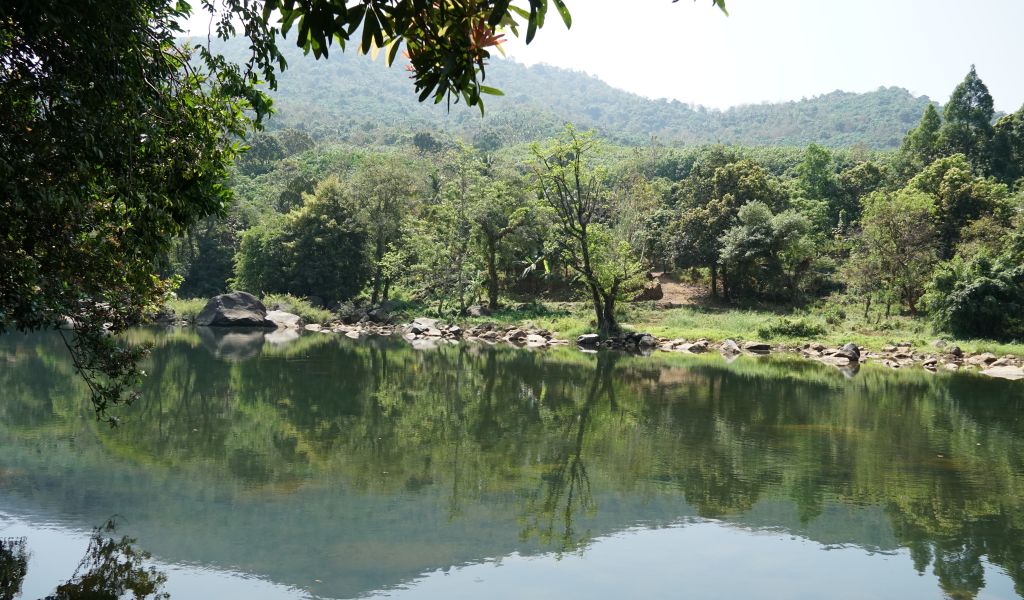RECOFTC assumes role of Secretariat for the Regional Model Forest Network-Asia

In January 2024, RECOFTC took on the role of Secretariat for the Regional Model Forest Network-Asia (RMFN–Asia). This initiative brings together a diverse group of stakeholders to collaboratively manage their landscapes, aiming to address the social, environmental and economic needs of forest communities through an inclusive, partnership-based approach. RMFN–Asia is part of the larger International Model Forest Network (IMFN), which is a global community comprising over 60 Model Forests across 30 countries, covering 70 million hectares. This makes IMFN the world’s largest network dedicated to sustainable natural resource management at the landscape level.
The Network’s strategy is built on a foundation of principles that are vital for the sustainable management of Asia’s forest landscapes. “The Network aims to shine a light on the successes of the Model Forests in meeting the varied needs of local communities,” says Patrick Wylie, Senior Policy Analyst with the IMFN Secretariat in Ottawa, Canada. He stresses, “Our approach is grounded in principles like partnership, landscape, sustainability, governance and knowledge-sharing. We are committed to fostering sustainable management practices across Asia’s forest landscapes.”
Currently, RMFN–Asia encompasses eight Model Forests located in China, India, Indonesia, Japan, Philippines and Thailand. There’s also interest from Viet Nam in joining the Network.
Asia’s Model Forests have diverse landscapes that include forests, farms, rivers, coasts, towns, mountains, protected areas and other features important to peoples’ lives and livelihoods. Model Forests comprise a wide diversity of stakeholders – smallholders, local community associations, Indigenous Peoples and ethnic minorities, government agencies, academic institutions and industry – representing the many environmental, social and economic elements of forest landscapes.
As Secretariat, RECOFTC facilitates RMFN–Asia’s operations. RECOFTC works in partnership with CIFOR-ICRAF, the Global Landscapes Forum, IUCN and Kasetsart University’s Faculty of Forestry to support the Network. This collaboration is supported by the Canadian Department of Natural Resources through their Global Forest Leadership Program. The Chair of RMFN–Asia is stationed at the Royal Forest Department in Bangkok, Thailand.
David Ganz, the Executive Director of RECOFTC, underscores the importance of this partnership, especially in the face of global environmental challenges. "At a time when climate change and biodiversity loss are at the forefront of global concerns, this partnership is crucial. It will enable Model Forests across Asia to amplify their efforts in forest landscape restoration and biodiversity conservation, with a focus on meeting the needs and upholding the values of all stakeholders involved in the landscape."
Under RMFN–Asia, landscape partners collaborate to define shared, locally relevant operational visions for sustainable natural resource management. This process cultivates deep trust and transparency, thereby increasing their willingness to implement innovative solutions.
Earlier this month in Pattaya, Thailand, RMFN–Asia members began the process of updating the regional strategic plan for RMFN–Asia spanning 2025 to 2030. The plan targets key areas such as climate resilience, forest landscape restoration, sustainable livelihoods and landscape finance as well as gender, youth and social inclusion.
RMFN–Asia's initiatives are strategically aligned with global forest landscape policies and targets, including those set by the United Nations Forum of Forests, the Bonn Challenge, the Global Biodiversity Framework, the United Nations Decade on Ecosystem Restoration, the Paris Agreement and the Sustainable Development Goals.
Dr. Preecha Ongprasert, Director of the Forestry Foreign Affairs at Thailand’s Royal Forest Department and the Chair of RMFN–Asia, detailed the Network's forward-looking strategy, "As we confront the region's challenges, we are committed to employing a range of strategies, including research, technological innovation, institutional empowerment, community-based resource management and effective communication and advocacy. We are ready to take the next steps in advancing Model Forests in the region, with the support of our communities, partners, stakeholders and the global Network."
###
The Regional Model Forest Network-Asia is supported by the Global Leadership Program under the Department of Natural Resources, Government of Canada.
RECOFTC’s work is made possible with the support of the Swiss Agency for Development and Cooperation and the Government of Sweden.

